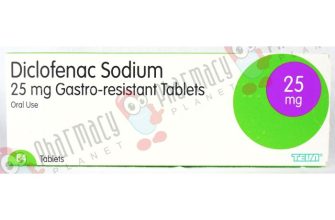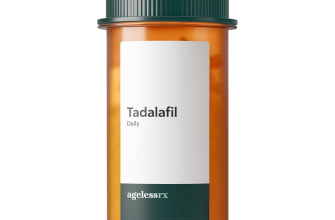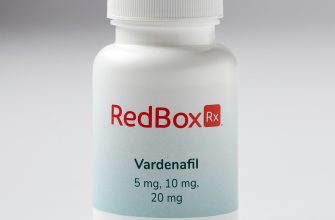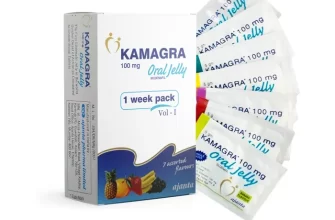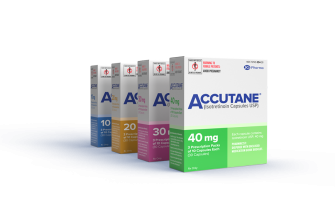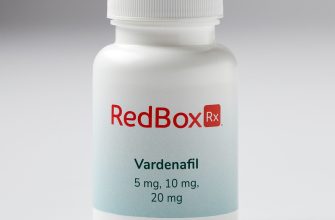Considering options for addressing hair loss? Explore the benefits of generic alternatives to Propecia as a reliable solution. These alternatives, often containing the same active ingredient, finasteride, can effectively promote hair regrowth and prevent further loss.
Generic medications provide a cost-effective path without sacrificing quality. Look for products from reputable manufacturers to ensure you are receiving a formulation that matches Propecia’s standards. Consulting a healthcare professional can guide you in selecting the most suitable option based on your individual needs.
Many users report positive results from using generic alternatives, experiencing noticeable improvements in hair density and thickness. Regular use as directed can enhance outcomes, so maintaining a consistent routine is key. Review user testimonials and clinical studies to gain insights on efficacy and user satisfaction.
With several generic options available, explore what works best for you. Prioritize your hair health and consider integrating dietary supplements and lifestyle changes that may complement the treatment for a holistic approach. Your quest for a viable Propecia alternative just became more accessible and promising.
- Generic Propecia Alternatives: A Comprehensive Guide
- Natural Alternatives
- Prescription Alternatives
- Comparison Table of Alternatives
- Understanding the Need for Alternatives to Propecia
- Reasons to Consider Alternatives
- Alternative Options to Explore
- Key Ingredients in Generic Propecia Alternatives
- Biotin and Its Role
- Natural Oils for Nourishment
- Comparing Effectiveness: Generic Propecia vs. Alternatives
- Generic Propecia
- Alternative Treatments
- Potential Side Effects of Generic Propecia Alternatives
- Hormonal Effects
- Allergic Reactions
- Cost Analysis: Generic Propecia vs. Alternative Treatments
- Where to Find Reliable Generic Propecia Alternatives
- Consult Healthcare Professionals
- Explore Local Health Stores
- Consulting with Healthcare Professionals About Alternatives
Generic Propecia Alternatives: A Comprehensive Guide
If you’re exploring options to manage hair loss without using Propecia, consider natural alternatives and other medications. Each option has its unique benefits and mechanisms of action.
Natural Alternatives
Natural remedies have gained popularity among those seeking to address hair loss. Here are a few notable ones:
- Biotin: This B vitamin supports hair growth and strengthens hair follicles. Regular intake may improve overall hair health.
- Minoxidil (topical): Available over-the-counter, this solution promotes hair regrowth when applied to the scalp. Studies show significant improvement for many users.
- Essential Oils: Oils like rosemary and peppermint may enhance blood circulation in the scalp, helping to stimulate hair follicles.
Prescription Alternatives
For those seeking pharmaceutical options, several are available aside from Propecia:
- Dutasteride: This medication inhibits a broader spectrum of the enzyme that converts testosterone into DHT, similar to Propecia but potentially more effective.
- Spironolactone: Often prescribed for women, this medication can help block androgen receptors and reduce hair loss by limiting DHT effects.
Comparison Table of Alternatives
| Alternative | Type | Usage | Notes |
|---|---|---|---|
| Biotin | Supplement | Daily | Safe for most; may take time to see results. |
| Minoxidil | Topical | Twice daily | Results often visible in 4-6 months. |
| Dutasteride | Prescription | Daily | May cause side effects; discuss risks with a doctor. |
| Spironolactone | Prescription | Daily | More common for female pattern hair loss. |
Choosing the right alternative should involve a discussion with a healthcare professional to tailor options to your needs.
Understanding the Need for Alternatives to Propecia
Many individuals seek alternatives to Propecia due to various side effects and the desire for different treatment approaches. The awareness around the potential sexual side effects, such as decreased libido and erectile dysfunction, drives patients to explore other options. Additionally, some users report experiencing mood changes and breast tenderness. These concerns have led to an increased interest in alternative therapies.
Reasons to Consider Alternatives
- Side Effects: Propecia may cause unwanted reactions that can affect quality of life. Finding alternatives can mitigate these risks.
- Cost: Some individuals find the long-term expense of Propecia prohibitive. Alternatives, including herbal supplements or topical treatments, may present a more budget-friendly option.
- Personal Preferences: Individuals may prefer natural or non-pharmaceutical interventions. Many seek methods that align with their lifestyle choices.
- Effectiveness: Some alternatives claim to promote hair growth without the side effects associated with Propecia. Exploring these options may yield favorable results.
Alternative Options to Explore
- Minoxidil: This topical treatment is widely used and commonly recommended for hair loss. It stimulates hair follicles directly.
- Biotin Supplements: Biotin can support overall hair health and growth, making it a popular choice for those seeking natural solutions.
- Low-Level Laser Therapy (LLLT): This non-invasive technique encourages hair follicle health by using specific wavelengths of light.
- Herbal Remedies: Ingredients like saw palmetto and pumpkin seed oil are often touted for their potential to reduce hair loss.
Each alternative presents unique benefits. It’s recommended to consult with a healthcare provider to determine the most suitable option considering individual health needs and goals.
Key Ingredients in Generic Propecia Alternatives
For those exploring alternatives to Propecia, it’s important to focus on key components that can contribute to hair health. Ingredients such as saw palmetto extract, which may inhibit the conversion of testosterone to DHT, are prevalent in various formulations. Look for products featuring this extract as it shows promise in promoting hair growth.
Biotin and Its Role
Biotin takes center stage as a crucial nutrient for hair strength. This B-vitamin supports keratin production, which can fortify hair strands and reduce breakage. Consider supplements or topical solutions infused with biotin to enhance your hair’s resilience.
Natural Oils for Nourishment
Natural oils like pumpkin seed oil and rosemary oil stand out for their nourishing properties. Pumpkin seed oil is rich in fatty acids that support hair follicles, while rosemary oil may improve blood circulation to the scalp. Incorporating these oils into your routine can contribute to healthier hair growth.
Comparing Effectiveness: Generic Propecia vs. Alternatives
The comparison between Generic Propecia and its alternatives reveals significant differences in effectiveness and user satisfaction. Understanding these variations can guide choices for those dealing with hair loss.
Generic Propecia
Generic Propecia, containing finasteride, directly targets DHT, a hormone contributing to hair loss. Clinical studies indicate around a 65% success rate in halting hair loss and promoting regrowth within six to twelve months of consistent use. Regular intake is key to achieving desired results.
Alternative Treatments
- Minoxidil: Available over-the-counter, this topical solution promotes hair regrowth through enhanced blood circulation in the scalp. Studies show a 40% success rate, especially in the crown area. Application should be twice daily for optimal effects.
- Low-Level Laser Therapy (LLLT): This non-invasive treatment uses laser light to stimulate hair follicles. Users typically report visible results after several months of use, with effectiveness rates around 30-50% based on user reports.
- Saw Palmetto: A herbal supplement that may reduce DHT levels. Anecdotal evidence suggests benefits, but scientific backing remains limited, showing mixed results in studies.
- Platelet-Rich Plasma (PRP): A procedure where a patient’s blood is processed to extract growth factors, then injected into the scalp. Some studies indicate success rates up to 70%, but results can vary significantly.
Choosing the right option depends on individual preferences and health considerations. Consult with a healthcare provider to evaluate personal needs and determine the most suitable treatment for hair loss.
Potential Side Effects of Generic Propecia Alternatives
Generic alternatives to Propecia, often used for hair loss treatment, may lead to several side effects. Users commonly report changes in sexual function as a primary concern. These can manifest as decreased libido, erectile dysfunction, or altered ejaculation. It’s crucial to monitor any shifts in these areas after starting a new medication.
Hormonal Effects
The ingredients in some generic alternatives might disrupt hormonal balance. Users may experience breast tenderness or enlargement, as well as mood swings. If you notice such symptoms, consult a healthcare professional to assess whether the medication is suitable for you.
Allergic Reactions
Some individuals may have allergic responses to components in generic formulas. Symptoms could include rash, itching, or swelling. If any of these occur, discontinuing the medication and seeking medical advice is advisable.
Considering potential side effects is essential. Regularly communicate with a healthcare provider regarding your experience and any concerns that arise. This proactive approach can help ensure that the treatment remains beneficial without compromising your well-being.
Cost Analysis: Generic Propecia vs. Alternative Treatments
Generic Propecia typically costs between $30 to $70 per month, depending on the pharmacy and location. This option offers a consistent treatment approach for hair loss at a relatively affordable price. Many patients find this option budget-friendly compared to branded alternatives, which can exceed $100 monthly.
Alternative treatments present a variety of price points. Minoxidil, for example, averages $20 to $50 per month, widely available in both topical solutions and foams. Other natural supplements, such as saw palmetto, can range from $10 to $30 each month, though their effectiveness might differ significantly among users.
Prescription options like Dutasteride may cost around $50 to $80 per month, offering a different active ingredient with similar benefits to Propecia. It may appeal to those looking for alternatives, yet it’s important to weigh the potential side effects and consult a healthcare provider before switching treatments.
For individuals considering laser therapy devices, a one-time purchase can range from $200 to $800, with no ongoing costs for treatment sessions. While this method requires a higher initial investment, it can provide long-term benefits without recurrent monthly expenses.
A cost comparison highlights that while Generic Propecia presents a budget-friendly recurring option, alternative methods can vary widely. Patients should assess their personal health goals and preferences to determine the most fitting financial commitment.
Where to Find Reliable Generic Propecia Alternatives
Check reputable online pharmacies that require a prescription. Websites like GoodRx or HealthLine provide listings of licensed pharmacies where you can find safe alternatives. Look for pharmacies that display verified seals, indicating they meet safety standards.
Consult Healthcare Professionals
Talk to your doctor or a licensed pharmacist. They can recommend trusted brands or generic options based on your health profile. Professional guidance ensures you choose a treatment that suits your needs.
Explore Local Health Stores
Visit health and wellness stores that specialize in hair care products. Many offer natural alternatives to Propecia, including supplements with saw palmetto or biotin. Check labels and verify ingredient safety to find suitable products.
Consulting with Healthcare Professionals About Alternatives
Schedule an appointment with your healthcare provider to discuss potential alternatives to Propecia. Be open about your concerns and goals regarding hair loss treatment. Provide a complete medical history, including any medications you’re currently taking and conditions you have. This information allows the provider to recommend suitable options.
Consider asking specific questions about the effectiveness, side effects, and costs of different treatments. Many alternatives, such as minoxidil or natural supplements, may work for you depending on your unique situation. Discuss the timeline for seeing results and what to expect during the treatment process.
Inquire about lifestyle changes that can support hair health. Diet, hydration, and stress management can play significant roles. Your provider may suggest specific dietary adjustments or supplements that promote healthier hair growth.
Request ongoing monitoring of your treatment progress. Regular check-ins help assess effectiveness and make adjustments if necessary. Document any side effects or changes you notice to provide detailed feedback to your provider.
Build a partnership with your healthcare team. Collaborating effectively leads to informed decisions and helps you find a treatment that aligns with your needs. Don’t hesitate to seek second opinions or consult specialists if needed; your comfort and satisfaction matter above all.


